The Great “Awakenings” and Their Champions
No, not those guys…
These guys 👇… and others like them.
If you’ve spent any amount of time in church you’ve no-doubt heard references-to and quotes-by the highly esteemed champions of the “Great Awakenings” and their “Revivals.” But as I covered in part 1, you won’t find anything about Awakenings or Revivals in the New Testament. My research for this series has convinced me that not only were these events not “great moves of God” as they are popularized to be, but that they were specifically designed by secret societies to sow deception, convolute the gospel and splinter the church, the Jesuit’s (secret society) stated goal (as found in the infamous Jesuit Oath) being to bring Protestantism back under the control of “Mother Rome.” But like I covered in part 2, these methods of infiltration and control did not originate with the Jesuits. They’ve been utilized by world leaders throughout history.
It’s a big subject, but I want to bring it into focus again before we consider Charles Grandison Finney, the esteemed “Father of Revivalism” in “The Second Great Awakening.”
Finney and Other Freemasons
The First Great Awakening (1730’s-40’s) coincided with the establishment of American Freemasonry, the first Freemasonic lodge being founded in Boston in 1733 . This was followed by the Freemason-orchestrated Independence of the United States from England (<- linked article is well worth a read) and the Second Great Awakening (late 1700’s-1800s), which included the “Revivals” of Master Mason Charles Grandison Finney.
“Charles Finney (1792-1875) ministered in the wake of the “Second Awakening,” as it has been called. A Presbyterian layover, Finney one day experienced ‘a mighty baptism of the Holy Ghost” which ‘like a wave of electricity going through and through me … seemed to come in waves of liquid love.’ The next morning, he informed his first client of the day, ‘I have a retainer from the Lord Jesus Christ to plead his cause and I cannot plead yours.’ Electrical waves of love flowing through his body? 😳” Source
“Charles Grandison Finney (born Aug. 29, 1792, Warren, Conn., U.S…), American lawyer, president of Oberlin College [why are all these guys rich, lawyers and presidents of colleges… not to mention, white?… 🤨], and a central figure in the religious revival movement of the early 19th century; he is sometimes called the first of the professional evangelists.” Hmm… – Britannica.com
Upon “finding salvation” Finney publicly renounced his Freemasonry and began his “Revival” ministry (1825-1835); dates that neatly coincide with the William Morgan affair of 1826. The timing was apparently not lost on others, because Finney stated in a speech that he left Freemasonry “a few years before the revelations of Freemasonry by Captain William Morgan were published.” – Burning Taper
In case you’re unfamiliar, the Morgan Affair is briefly described in the article, The Strange History of Masons in America.
“…While the Masons captured the allegiance of much of the early Republic’s elite, the group did fall under widespread suspicion. The William Morgan affair of 1826—when a former Mason broke ranks and promised to expose the group’s secrets—threatened its demise. Morgan was allegedly abducted and presumed killed by Masons, and the scandal proved a low point in the public image of the fraternal order.” – Daily Jstor
The late (Freemason/Ecumenical) Jerry Falwell called Finney “one of my heroes and a hero to many evangelicals, including [Freemason/Ecumenical] Billy Graham.”
Meanwhile in Ireland
The American born Finney was a contemporary of (again; wealthy aka “elite” – his parents were landowners of Leap Castle in King County, Ireland) Anglo-Irish Bible teacher, Freemason and developer of the doctrine of Dispensationalism, John Nelson Darby 1800 – 1882.

The following is taken from Theology Online’s article The Freemason and Dispensationalist Connection.
“Billy Graham, Pat Robertson, Rick Warren, Oral Roberts, Jerry Falwell and Robert Schuller were all high ranking Freemasons as are their present day successors like T.D. Jakes. We know the Catholic Church has been subverted but we need to be reminded that the same applies to Protestants, and especially Evangelicals.” – Theology Online
In his book, Christian Zionism: Road-map to Armageddon, retired Anglican British Vicar Stephen Sizer refers to Dispensationalism as “Christian Zionism,” part-of / one-and-the-same-as the modern theological / political movement.
While scripture tells us that the old Covenant has been done away with. (2 Cor. 3: 7-11, Hebrews 10:9, Haggai 2:9), Darby referred to the church’s current “dispensation of grace” as a mere “parenthesis” in God’s plan, with Old Covenant bloodline Israel set to reign on earth sometime in the future.
Bible translator C.I. Scofield and Dallas Theological Seminary President Lewis S. Chafer picked up the baton, resulting in the predominance of seminaries and denominations today who maintain that God will once again return to a dispensation of law and again raise up the people of the physical bloodline of the Old Covenant at the end of the dispensation of grace. source
I don’t want to veer too far from today’s topic of Charles Finney, but I do want us to keep the greater picture behind the subjugation of Protestantism in mind.
So why is Freemasonry so important in that subjugation?
In short, when we’re talking about Freemasonry we’re talking again about the Mystery Schools.
In his book Morals and Dogma, Grand Master Albert Pike stated that the source of Freemasonry’s doctrines ultimately goes back to the Kabbalah:
“All truly dogmatic religions have issued from the Kabalah and return to it; everything scientific and grand in the religious dreams of all the Illuminati, Jacob Boeheme, Swedenborg, Saint Martin, and others, is borrowed from the Kabalah: all Masonic associations owe to it their Secrets and their Symbols.” (Morals and Dogma, p 744)
The Kabbalah is a Jewish book of occult knowledge, but it did not originate with the Hebrews/Jews. The rabbis picked up these satanic Mystery School teachings while in captivity in ancient Babylon and Egypt. As far as Freemasonry’s Kabbalist (Jewish) influence, Jewish Encyclopedia online is very open about it:
“The technical language, symbolism, and rites of Masonry are full of Jewish ideas and terms.” (Jewish Encyclopedia, 1903, Vol. 5, page 503) source
Many of Finney’s (and Wesley’s and Edward’s and Whitefield’s) teachings and aspirations represented secret society aims as outlined in Freemasonry/Kabbalah, these same Mystery School aspirations being found in the Roman Catholic church. According to an article entitled “What is Kabbalah?” on the website Chabad.org:
“The purpose of the Kabbalah is fraught with misconceptions. A popular misunderstanding is that the study of Kabbalah is meant to transform one into a psychic, or perhaps a clairvoyant, capable of miraculous and otherworldly abilities. This, however, is a misconception. The ultimate purpose in the study of Kabbalah is the perfection of the Self. Making the Self into a better, more expanded individual, more transcendent, more attuned to the essence and roots of one’s soul, this is what Kabbalah comes to offer those who truly wish to receive it.” – Chabad.org
How many modern church doctrines, particularly those in charismatic circles promote this self-focus with biblical-sounding terminology?
I also find it telling that, like Wesley, who wrote his famous letter publicly rebuking the Moravians much later in life (not for their true crimes but more or less for hurting his feelings), Finney published his condemnation of Freemasonry; The Character, Claims and Practical Workings of Freemasonry in 1869; a full 50 years after his alleged renunciation of the secret society and beginning of his ministry.
Finney & Modern Evangelicalism
“Many factors, cultural and theological, converged to form what we might call today “Evangelical Worship,” including Enlightenment philosophy, German Pietism, John and Charles Wesley, American revival and democracy, and rural camp meetings. None, however, had as significant impact as one individual—nineteenth-century Revivalist Charles G. Finney (1792–1875)”. – Religious Affections
Finney’s New Methods combined Whitefield’s “second experience” and activism, Edwards’ Enlightenment thinking & fire and brimstone preaching, Wesley’s Perfectionism and Pelagianism, and emotion-evoking Moravian music with his psychological “Systematic Theology,” which was self admittedly designed to cast doubt on the believer’s salvation and manipulate him to come forward at meetings. Finney maintained that, as people were spurred on by rational conviction, they would be able to go on to live a good moral life.
“He also focused on the responsibilities that converts had to dedicate themselves to disinterested benevolence and to work to build the kingdom of God on earth. [You mean like the NAR? 🤔] Finney’s eschatology was postmillennial, meaning he believed the Millennium (a thousand-year reign of Christ on Earth) would begin before Christ’s Second Coming. [Like Darby.] Finney believed Christians could bring in the Millennium by ridding the world of ‘great and sore evils.’
Journalist Frances FitzGerald wrote,
“In his preaching the emphasis was always on the ability of men to choose their own salvation, to work for the general welfare, and to build a new society.”
– Fitzgerald – The Evangelicals: The Struggle to shape America.
I’m tempted to go on a tangent here about disinterested benevolence and the Benevolent Empire, since organized Christianity so identifies with this cause, as we currently see in the popularity of the movie The Sounds of Freedom. But I’ll save that for an article about the film. Suffice it to say that the Freemasonic infiltration of Protestantism and steering it toward carnality has many “moral” faces that, on the surface, appear to be good and for the betterment of society.
I realize I’m walking on thin ice here and I can hear the arguments.
“But the church has done more good for the world than any other organization. Are you saying that’s bad?”
“I love the worship at my church. It takes my mind off worldly problems and helps me focus on Jesus.”
I am not saying that there is anything wrong with feeding the poor, defending the innocent, or trying to better situations when you have the opportunity (1 Cor 7:21-23). And I love music as much as the next person. I’m not going as far as Satan’s “timbrels” and tribal beats here, but there’s no question that some modern worship music is problematic. We need to keep our higher calling in mind. What I’m pointing out is that there was and is a very specific design to convolute and distort the gospel, to bring a carnal focus, to replace the power of God with Mysticism and bring Protestantism back under the rule of Rome.
It is simply a fact that many of Finney’s unscriptural doctrines have become the foundation of modern Evangelicalism, paving the way for the entire Ecumenical “Religious Right.” Today’s crusades, revival meetings, the altar call, the use of excitement and emotion to evoke “decisions” for Christ, the “prayer of faith,” and the attempts to promote moral reformation in the culture can all be attributed to these carnal methods. From the article “Roots of Evangelical Worship” on the website Religious Affections:
“Finney’s philosophy began a trend to create emotional experiences in the church that was kept alive in the revivalist tradition in the years to come. D. L. Moody (1837–1899) and his famous song leader, Ira Sankey (1840–1908), were widely known for their emotional, experience-oriented preaching and music, helping to further ingrain these kinds of methods into the church’s worship so that every service became an evangelistic revival meeting. Sankey popularized “evangelistic song leading” and soloists in services, composing songs reminiscent of older camp meeting choruses. Sankey published a collection of his songs in 1873 and then teamed with Sunday School song author Philip Bliss (1838–1876) to compile Gospel Hymns and Sacred Songs in 1875, which included songs by the most prolific author of gospel songs, Fanny Crosby (1820–1915). Gospel Hymns was printed in six total editions through 1894, when a final edition included 739 gospel songs.
Later, Homer Rodeheaver (1880–1955), song leader to revivalist Billy Sunday (1862–1935), taught that “Creating the proper atmosphere for the character of the meeting to be held is an important office of the director.” He taught song leaders how using certain songs and directing methods could create the right “emotional conditioning.”7 Liturgically, a new service structure developed that consisted of a “song service,” the sermon, and a climactic altar call.” – Religious Affections
You will find no agreement with these methods in Paul’s first letter to the church at Corinth,
And so it was with me, brothers and sisters. When I came to you, I did not come with eloquence or human wisdom as I proclaimed to you the testimony about God. For I resolved to know nothing while I was with you except Jesus Christ and Him crucified. I came to you in weakness with great fear and trembling. My message and my preaching were not with wise and persuasive words, but with a demonstration of the Spirit’s power, so that your faith might not rest on human wisdom, but on God’s power. (I Cor 2:1)
Finney preached a (Papal/Mystery School) gospel of Works, teaching that sinners will be saved when they turn from sin. According to Finney, regeneration is “to change one’s actions” and that the believer is kept saved by walking in perfect holiness. Again, we have Mystic Perfectionism.
OSAS Again (I Just Can’t Pound This Home Enough!)
Many believers will argue today that “Once Saved Always Saved” (OSAS) is a heretical teaching when in reality it is the very Gospel of Jesus Christ!
Finney picked up where Wesley’s Pelagianism (not to mention his Perfectionism) left off. The same heretical Pelagian doctrine, which rejects the notion of original sin to facilitate the “free will” of man to choose or reject God, necessitates the possibility of man LOSING his salvation if he doesn’t keep making the right choices. In an article about Finney, the website Dissentr writes,
“[Finney] denied original sin and depravity… because in his mind they would be unfair. For Finney, no man could be born into a state of inescapable depravity because that would absolve him from responsibility for his sin…
The logical consequence of this for Finney was that “conversion” was purely an act of the will with no supernatural component whatsoever. A man was to be literally talked into the kingdom. He needed to be intellectually persuaded of the truth of the gospel and his own culpability. Finney employed what was known as the “anxious seat” where sinners would be put in the front of the congregation and browbeaten into believing that they were sinners and entirely by an act of their own will to surrender themselves to Christ. This was hyper Pelagianism taken to a new level. – Dissentr (bold added)
Both Calvinism (Predestination/Total Depravity) and Arminianism (Pelagian Free Will) are teachings of men. Both are attempts to reduce God’s unsearchable ways to something that can be grasped by the human intellect.
In Finney’s Own Words
Lest anyone accuse me of bashing a “great man of God,” here are Finney’s views on key doctrines in his own words (and how they contradict scripture).
REGENERATION
“Regeneration implies an entire present change of moral character, that is, a change from entire sinfulness to entire holiness. (Charles Finney, Lectures On Systematic Theology, p 291)
🧾Romans 7:14–19, 21–23, more on the holiness movement
“Several theologians have held that regeneration is the work of the Holy Spirit alone … but I might just as lawfully insist that it is the work of man alone.” (Ibid., p 224)
🧾Phil 2:13
IMPUTED RIGHTEOUSNESS
“The doctrine of imputed righteousness, or that Christ’s obedience to the Law was accounted as our obedience, is founded on a most false and nonsensical assumption.” (Ibid, p 320)
🧾2 Cor 5:21, Rom 10:4
JUSTIFICATION BASED ON SANCTIFICATION
“We see that, if a righteous man forsake his righteousness, and die in his sin, he must sink to hell. Whenever a Christian sins he becomes under condemnation, and must repent and do his first works, or be lost.” (Ibid., p 124)
🧾Eph 2:8, Jn 6:37-40, Jn 5:24, 2 Cor 1:22, Rom 8:38-39, Phil 1:6
“Christ “could do no more than justify himself. It can never be imputed to us … it was naturally impossible, then, for him to obey on our behalf.” (Ibid.)
🧾Rom 5:1
This doctrine “of representing the atonement as the ground of the sinner’s justification has been a sad occasion of stumbling to many.” (Ibid., p 732)
🧾Rom 5:9-18
ENTIRE SANCTIFICATION
“It is self-evident, that entire obedience to God’s law is possible on the ground of natural ability. To deny this, is to deny that a man is able to do as well as he can. The very language of the law is such as to level its claims to the capacity of the subject, however great or small that capacity may be.”
🧾1 Cor 2:14
“Thou shalt love the Lord thy God with all thy heart, with all thy soul, and with all thy mind, and with all thy strength.” Here then it is plain, that all the law demands, is the exercise of whatever strength we have, in the service of God. Now, as entire sanctification consists in perfect obedience to the law of God, and as the law requires nothing more than the right use of whatever strength we have, it is, of course, forever settled, that a state of entire sanctification is attainable in this life, on the ground of natural ability.” (Ibid., p 407)
🧾Rom 8:7

OBEDIENCE
“That which the precept demands must be possible to the subject. That which demands a natural impossibility cannot be moral law. To talk of inability to obey moral law is to talk nonsense.” (Ibid., p 2)
🧾Eccl 7: 20, 1 Cor 2:14, more on man’s inability to keep the moral law
“We shall see that perseverance in obedience to the end of life is also a condition of justification …” (Ibid., p 735-737)
🧾Hebrews 5:9, Romans 1:5,
SALVATION
“…is not founded in Christ’s literally suffering the exact penalty of the Law for them, and in this sense literally purchasing their justification and eternal salvation.” (Ibid, p 747)
🧾1 Cor 6:20
ETERNAL SECURITY
“The Christian, therefore, is justified no longer than he obeys, and must be condemned when he disobeys or Antinomianism is true … In these respects, then, the sinning Christian and the unconverted sinner are upon precisely the same ground.” (Ibid., p 46)
🧾Rom 8:38-39, more on legalism and antimonianism
“It is not intended that saints, or the truly regenerated, cannot fall from grace, and be finally lost, by natural possibility. It must be naturally possible for all moral agents to sin at any time. Saints on earth and in heaven can by natural possibility apostatize and fall, and be lost. Were not this naturally possible, there would be no virtue in perseverance.” (Ibid., p 550)
🧾So then, it does not depend on man’s desire or effort, but on God’s mercy. (Rom 9:16)
🧾And you were dead in the trespasses and sins in which you once walked, following the course of this world, following the prince of the power of the air, the spirit that is now at work in the sons of disobedience among whom we all once lived in the passions of our flesh, carrying out the desires of the body and the mind, and were by nature children of wrath, like the rest of mankind. But God, being rich in mercy, because of the great love with which he loved us, even when we were dead in our trespasses, made us alive together with Christ— by grace you have been saved— and raised us up with him and seated us with him in the heavenly places in Christ Jesus, so that in the coming ages he might show the immeasurable riches of his grace in kindness toward us in Christ Jesus. For by grace you have been saved through faith. And this is not your own doing; it is the gift of God, not a result of works, so that no one may boast. (Eph 2:1-20)
All of this is completely contrary to biblical salvation as it’s presented in the New Testament, which teaches that it is the hearing of God’s Word which stirs a response in the believer’s heart to place their trust in Christ. (Rom 10:17)
A few more comments on Finney from the Dissentr article:
“[Finney] also held to a form of perfectionism wherein a believer could live in perfect love for God and his neighbor…[T]his might include entire sanctification, that is, life without sin.
All of this was dependent on the natural abilities of man himself. 🤔
BB Warfield famously said that “God could be eliminated from Finney’s thought entirely without changing it’s essential nature.” (paraphrase)
There is more, but this should be enough to convince any sound biblically informed believer of the heretical nature of Finney’s theology.” – Dissentr (bold added)
Criticism of Finney By Contemporaries & Others
Despite his blatantly unbiblical doctrine, Finney was wildly successful. Hundreds of thousands were reportedly “converted,” and his meetings considered mass “revivals.” But most of the “conversions” of his revivals were temporary. He himself wrote:
“I was often instrumental in bringing Christians under great conviction, and into a state of temporary repentance and faith . . . . [But] falling short of urging them up to a point, where they would become so acquainted with Christ as to abide in Him, they would of course soon relapse into their former state.” (cited in B. B. Warfield, Studies in Perfectionism, 2 vols. New York: Oxford, 1932])
One of Finney’s contemporaries put it more bluntly:
“During ten years, hundreds, and perhaps thousands, were annually reported to be converted on all hands; but now it is admitted, that real converts are comparatively few. It is declared, even by [Finney] himself, that ‘the great body of them are a disgrace to religion.’” (Ibid.)
James Boyle, a co-worker of Finney, wrote on Dec. 25th, 1834:
“Dear brother Finney, let us look over the fields where you and others have labored as revival ministers, and what is now their moral state? What was their condition within three months after we left them? I have visited and revisited many of these fields, and groaned in spirit to see the sad, frigid, carnal, contentious state into which the churches have fallen–and fallen very soon after our first departure from them.” (Ibid., p 26)
Dr. Martin Lloyd-Jones wrote that;
“Finney was a man who taught quite definitely that, if one applied a given technique, one could have a revival at any time. This is the essence of Finney’s teaching in his books on revivals. But history has surely proved that Finney was quite wrong.
Many have tried to plan revivals by using his technique and have done so honestly, sincerely, and thoroughly, but the desired revival has not come. One of Finney’s cardinal errors was to confuse an “evangelistic campaign” and a revival, and to forget that the latter is always given in the sovereignty of God. It never results from the adoption of certain techniques, methods, or organization.
Indeed, in copies of the Oberlin Evangelist containing articles by Finney (after his period as an evangelist and when he had become a professor of theology), there are indications that the writer himself had become somewhat suspicious of his own techniques.
There are statements written by Finney such as the following:
“If I had my time over again I would preach nothing but holiness. The converts of my revivals are a disgrace to Christianity!”
“If I had the strength to go through the churches again, instead of preaching to convert sinners, I would preach to bring the churches to the spiritual standard of holy living.”
The suggestion is that the tremendous pressure which this evangelist’s methods brought to bear upon the will and emotions, produced only temporary results. (Conversions, Psychological and Spiritual, p. 31)
Finney’s close associate, congregational clergyman and president of Oberlin College Asa Mahan shares this telling account in his autobiography:
“Appalled at the backsliding which followed his revivals of 1831-32, his most earnest efforts were put forth to induce among believers permanence in the divine life. In accomplishing this he knew of but one method: absolute and fixed renunciation of sin, consecration to God, and purpose of obedience.
During his pastorate at Chatham Street Chapel in New York City, for example, he held for weeks in succession special meetings in his church for perfecting his work, and never were a class of poor creatures carried through a severer process of discipline than were these.
Years afterward, as their pastor informed me, those believers affirmed that they have never recovered from the internal weakness and exhaustion which had resulted from the terrible discipline through which Mr. Finney had carried them, and this was all the good that had resulted from his efforts.
When he came to Oberlin, and entered upon the duties of his professorship, he felt that God had given him a blessed opportunity to realize in perfection his ideal of a ministry for the churches. He had before him a mass of talented and promising theological students, who had implicit confidence in the wisdom of their teacher, and with equal sincerity would follow his instructions and admonitions.
He accordingly, for months in succession, gathered together those students at stated seasons, instructed them most carefully in regard to the nature of the renunciation of sin, consecration to Christ, and purpose of obedience, required of them.
Then, under his teachings and admonitions, they would renew their renunciations, consecrations and purpose of obedience, with all the intensity and fixedness of resolve of which their natures were capable. The result, in every case, was one and the same: not the new life, and joy and peace, and power that was anticipated, but groaning bondage under the law of sin and death.
At the commencement, and during the process of each meeting, their confessions and renunciations, their solemn consecrations and vows of obedience, were renewed, if possible, with fuller determination than ever before.
Each meeting, however, was closed with the same dirge song: “Look, how we grovel here below,” or, “Where is the blessedness I knew, when first I saw the Lord?” or, “Return, O Holy Dove, return.” And as they went out, not their songs of joy and gladness were heard, but their groans became more and more terribly audible. (Autobiography, pp. 244, 245)
Earning God’s favor by a certain act or acts is a false philosophy of the god of this world.
Philip Mauro penned these words in 1920.
“That which men speak of as “the Christian Religion” has no real existence. What they mean by that expression is the bewildering confusion of “Christendom,” with its tangle of contradictory doctrines, and its Babel of over a thousand jarring sects and lesser organizations. The nations that are called “Christian” have not really “changed their gods which are yet no gods.” Men still worship everywhere the creatures of their own imaginations. But the devil, defeated in his character of roaring lion by the Lamb of God, Who, on the cross, spoiled principalities and powers, triumphing over them in it (Col. 2:15), has transformed himself under the guise of “an angel of light” and his ministers under that of “ministers of righteousness” (2 Cor. 11:14, 15). And thus we have an immense variety of religions, Catholic, Protestant, Anglican, Greek-Orthodox, etc., in any one of which an unpardoned and unreconciled sinner, who is an enemy of God and rejecter of Christ may both enjoy religious satisfaction to his heart’s content and according to his own preferences, and may also secure the worldly advantages that accrue to those who live religiously, and who are members of some religious denomination known and respected by the world.
It is a far different thing to turn one’s back upon all human religions and religious organizations, to receive Christ for salvation and life, and to “go forth unto Him without the camp, bearing His reproach” (Heb 13;13)
Michael Houdemann of Got Questions addresses the same error;
“In almost every false religion, meriting God’s favor or earning eternal life is a predominant theme. Earning salvation by works, however, is contrary to biblical revelation. Man cannot work to earn God’s favor; eternal life is a free gift (see Ephesians 2:8-9). And that free gift is available through Jesus Christ and Him alone (John 3:16; 14:6). You may ask why mankind does not simply receive the free gift of salvation (John 1:12). The answer is that Satan—the god of this world—has tempted mankind to follow his pride instead. Satan sets the agenda, the unbelieving world follows, and mankind continues to be deceived. It is no wonder that Scripture calls Satan a liar (John 8:44).” – Got Questions
So, it’s clear that Charles Grandison Finney, the great “Father of Revivalism” was not even a Christian.
The True Source of Finney’s Unscriptural Teachings
Despite its lack of biblical foundation, his “Systematic Theology” continues to be a foundational text in Seminaries. The same Dissentr article from above discusses the unscriptural nature of his methods.
“As one reads Finney’s works, one is immediately struck by how little scripture is discussed. Finney was far more a philosopher than a theologian who was utterly enslaved to human reason [note: Whitefield, Edwards and Wesley were also professors of Philosophy]. His essays are a tedious exercise in relentless logic in which he incessantly subjugates God’s truth to his own humanistic conceptions of justice.” – Dissentr (bold added)
If Finney didn’t get his teachings from scripture, where did they originate? Like I already mentioned, according to Finney, Christianity was all about Moralism. While morality is certainly important to the Christian, Moralism on its own, through the efforts of man, is not a Christian teaching, but is Freemasonic.
It seems we’ve come back to square one.
The significance of Moralism in Freemasonry, from the website, Freemasons Community:
“The Importance of Moral Growth in Freemasonry
Moral growth refers to the development of an individual’s ethical understanding, values, and behavior. It is a continuous process of self-improvement, guided by introspection and critical thinking.
Moral growth is of great importance because it enables individuals to make better decisions, act responsibly, and treat others with kindness and respect.
This process helps to create a more harmonious and just society, where people are committed to the welfare of their fellow human beings.” – Freemasons Community
“To the Masonic mind modeled by virtue and science, masonic teaching presents a great and useful challenge through out a Freemason’s life – to contemplate and to act until his closing hour of existence on that perspicuous and uniquely human concept of ‘morality.’” – Brother Jyothindra Kumar, Morality and Freemasonry, Quoted on Freemasonry.com
It’s hard to keep all the secret societies sorted out, and again, that’s by design to keep us “in our heads.” Was it the Freemasons, the Jesuits, the Rosicrucians, the Knights of Malta…? The truth is that all the above work together and there is only one deception behind all the expressions of the philosophies of the god of this world – they are found in Kabbalah/Gnosticism.
So, again, the purpose of the so-called “Revivals” is to remove Reformation/Protestantism and infiltrate “Christianity” with carnal Mystery School thought / remove faith from the earth – (Lk 18:8). Vigano mentions the “Lutheran heresy,” John-Henry Weston’s guests speak of the end of Protestantism and a return to the Latin Mass, and speaking to the greater picture, the Economist cover of 2017 clearly shows their intentions of complete dominance in every walk of life through their legions of tentacles, especially in politics (UN, WHO…, foundations, parties, governments…
One last interesting side-note is that the Second Great Awakening started in Kentucky and Tennessee; and the recently planned/ “spontaneous” revival started in Asbury, Kentucky. 🤔
People may roll their eyes, look down their nose or talk over you when you question their heroes, but don’t let that get to you. Choose your battles wisely. Love them. Pray for them. Because they’ve been indoctrinated from day one just like we all were. And it is only God who opens our eyes. If you see what’s really going on in the church and the world, please don’t make the mistake of thinking you’re smarter than anyone else. There are enough know-it-alls out there to give the gospel of Jesus Christ a bad name. Just give God thanks for revealing these things to you and pray for His wisdom, guidance and the faith to walk through these deceptive days.
“Abide in me, and I in you. As the branch can not bear fruit of itself, except it abide in the vine, no more can ye except ye abide in me” (John 15:4)
Next up; The Third “Great Awakening” (1875-85) & the Azusa Street “Revival” (1906-1915)
God bless you!
Revivals Pt1 – Asbury: Let’s Talk About Revivals
Revivals Pt 2 – Enlightenment in the Land of the Plumed Serpent
Revivals Pt3 – Mystery Schools, The RCC and the Reformation
Revivals Pt4 – The First Great Awakening & The Enigmatic George Whitefield
Revivals Pt5 – The Brimstone and Mysticism of Jonathan Edwards
Revivals Pt 6 – John Wesley (1 of 2) – The Mystery School Dialectic and Christian Mysticism
Revivals Pt 7 – John Wesley (2 of 2) More Mystics & Papal Doctrines of Men
Revivals Pt8 – From Wesley to Finney By Way of Count Zinzendorf
Revivals Pt9 – Charles Grandison Finney, Freemasonic Moralism and Modern Evangelicalism
Revivals Pt10 – The Pagan “Virus“
Revivals Pt11 – The Third Great Awakening: Pentecostalism!
Revivals Pt12 – Pentecostalism Pt2: The Founders of Pentecostalism
Revivals Pt 13 – Social Justice Pt 1 – They Don’t Mix
Revivals Pt 14 – Social Justice Pt 2 – A City Upon A Hill


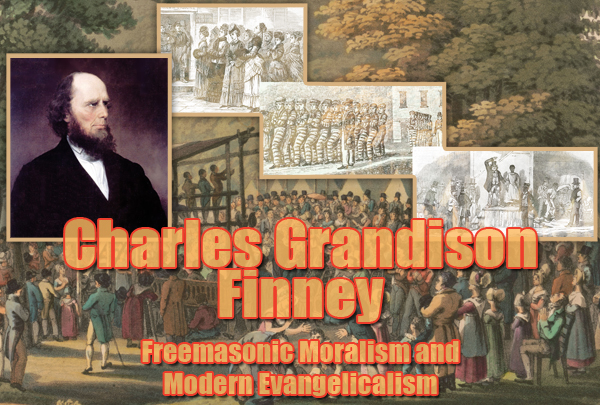

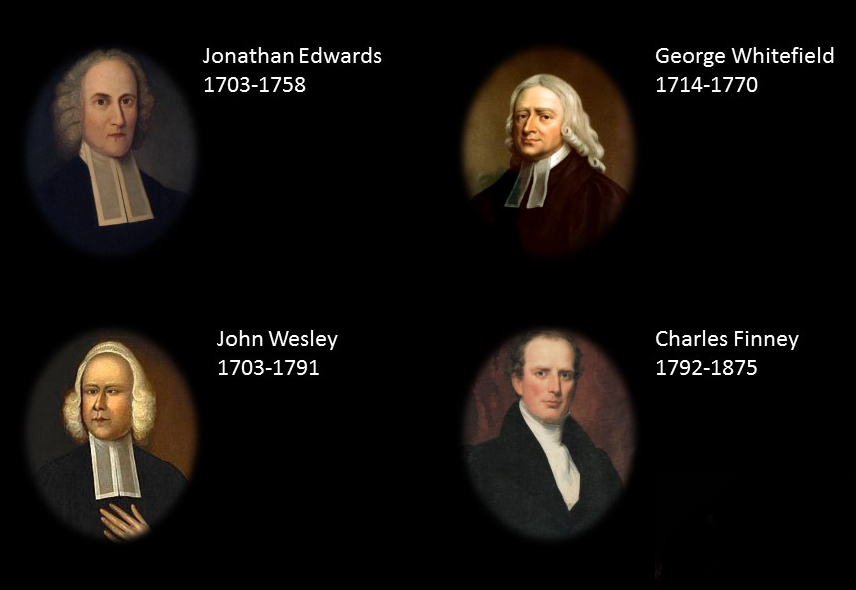








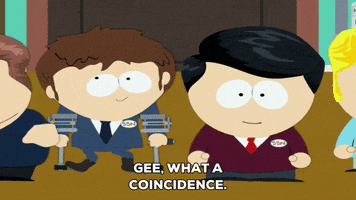



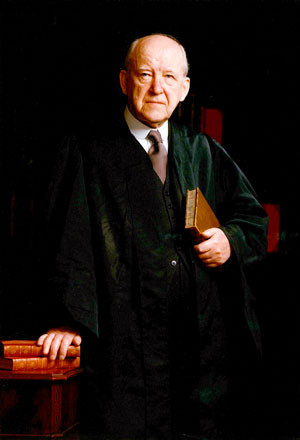

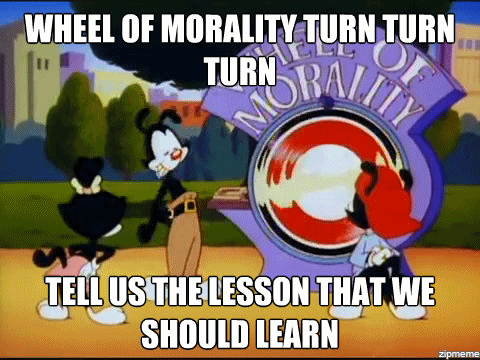






![STARS, WARS, BLOOD & LUST… [The “royal secrets” of the Djedi knights of Scientism]](https://christianobserver.net/wp-content/uploads/2023/11/star-wars-blood-lust-150x150.jpg)

